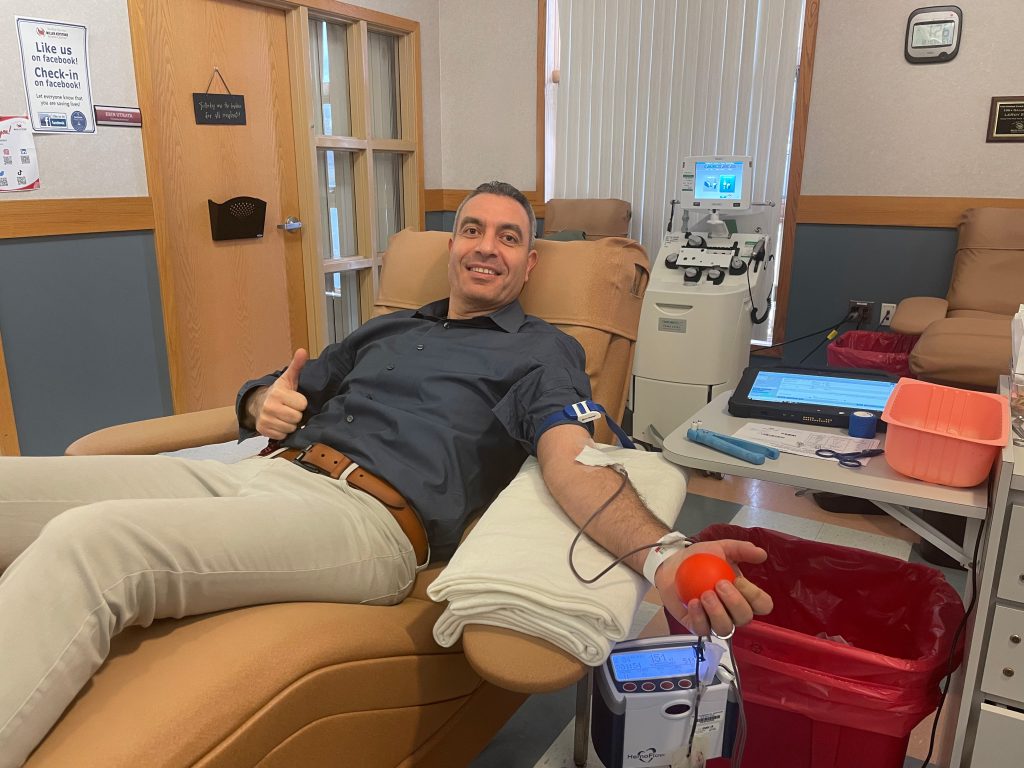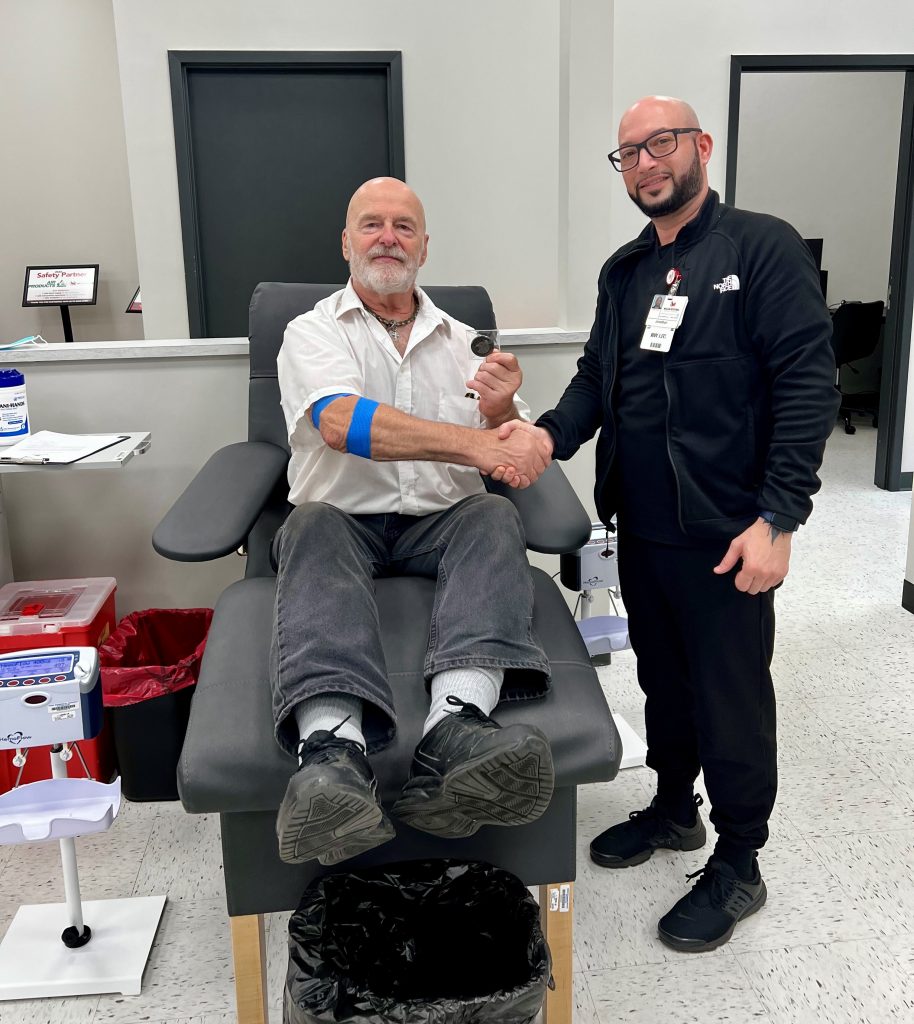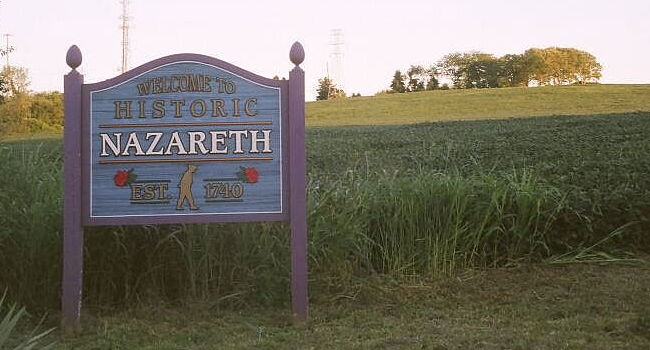Although one donated pint of blood can help save up to three lives, someone in the U.S. requires a transfusion every two seconds. Miller-Keystone Blood Center reports that over 25% of the population will need blood at least once throughout their life, and although 37% of the population is eligible to donate, only 3% of the population does so regularly.
January is recognized as National Blood Donor Month and is meant to honor donors and spread awareness about the necessity for blood donations. In order to help build community knowledge about donating and what makes it so vital, Miller-Keystone Blood Center Vice President and Chief Operating Officer Rami Nemeh and Lead Staff Jonathan Ortiz shared the importance of their work and what makes their job so rewarding.
Rami has been with Miller-Keystone for over 20 years and got his start in medical technology and medical testing, working his way up from lab director to becoming the chief operating officer. As COO, Rami works at the company headquarters in Bethlehem and oversees every aspect of the business from donor relations to partnerships with 35 hospitals in the Lehigh Valley and surrounding areas.

Rami prides himself on his involvement with the community and working with each hospital to ensure the continued supply of blood products that support patients in need of transfusions.
Something the general public isn’t aware of is how much work goes into everything behind the scenes. From managing processes that begin the minute donors are called to when the patient receives their transfusion because “it takes an army,” Rami remarks.
Given the short shelf life of blood and the 35 hospitals that rely on donations from Miller-Keystone, the blood center needs at least 350 donors every day in order to meet the community demand.
Additionally, Rami divulges that the pandemic created significant challenges for donation collections, but the center was able to quickly implement measures that ensured the safety of staff and donors to keep up with the demand for blood.
During that time, Miller-Keystone led a process within the service area that allowed them to test plasma for Covid-19 antibodies from patients that recovered from Covid-19 in order to provide the convalescent plasma as treatment for patients that were unable to develop enough antibodies on their own.
Rami proudly shares that he was very involved in the process, which took just a few weeks to develop, and that it helped thousands of Covid-19 patients as over 5,000 doses were administered.
Rami also finds that being able to make a difference in the community and getting to support and work with an “amazing group of individuals” is very rewarding because he enjoys helping them grow.
“Donors are happy to be here as well, so it’s rewarding to be surrounded by community heroes,” Rami reveals.
Over at the Hamilton center in Allentown, Jonathan makes sure everything runs smoothly and ensures that both the employees and donors are happy. Although he started out as collections staff and mobile staff, he loves his current position and has been with the company for six years.

Jonathan explains that there are a lot of factors that influence the decision to donate, which can cause fluctuations in supply from something as simple as the weather. As a result, each day comes with its own set of challenges, but he nevertheless finds his work extremely rewarding.
Some of the most rewarding aspects for Jonathan are helping staff accomplish their goals and grow, as well as interacting with and getting to know donors because he enjoys hearing about why they choose to donate since they are taking the time out of their day to selflessly help someone in the community that they don’t even know.
“Most people don’t realize how important it is to donate until they or their family member needs blood,” Jonathan points out.
To show donors the difference they’re making, Miller-Keystone has created a Thank the Donor program that allows transfusion recipients to specifically thank donors for their lifesaving generosity anonymously via email, which truly helps donors see how their donation impacted the life of the person receiving their blood.
There are other benefits associated with donating blood as well. For example, regular blood donation is linked to lower blood pressure, lower risk of heart attacks and even has detoxifying benefits, which Jonathan jokingly refers to as an “oil change for your body” because of how the body reproduces new red blood cells within two months and replaces plasma within 48 hours.
In fact, donors are eligible to donate whole blood every 56 days, platelets every two weeks and plasma every four weeks.
For those that are unable to donate, Jonathan notes, they can also make a difference by volunteering in a number of ways such as setting up canteen, organizing a blood drive and gathering donors.
Ultimately, Jonathan believes that a lack of understanding about the science, experience and importance of donating blood is what deters many people from becoming a donor, but he encourages people to do their research or just stop by one of Miller-Keystone’s seven centers to talk with the knowledgeable staff who can answer any questions they may have.
“Just give it a chance, you won’t regret it,” says Jonathan.








